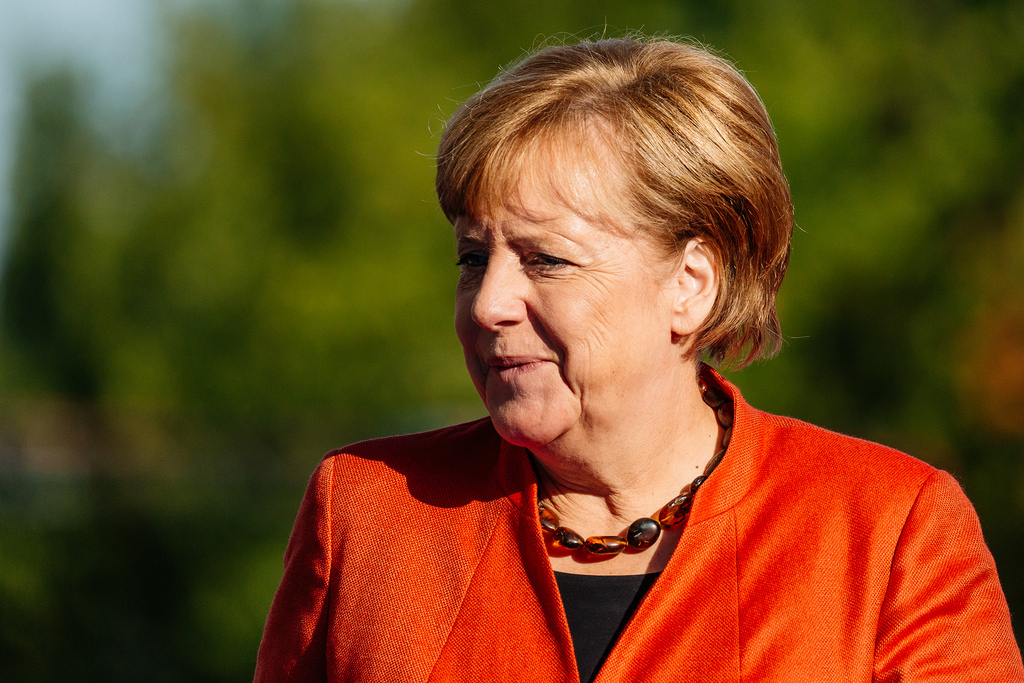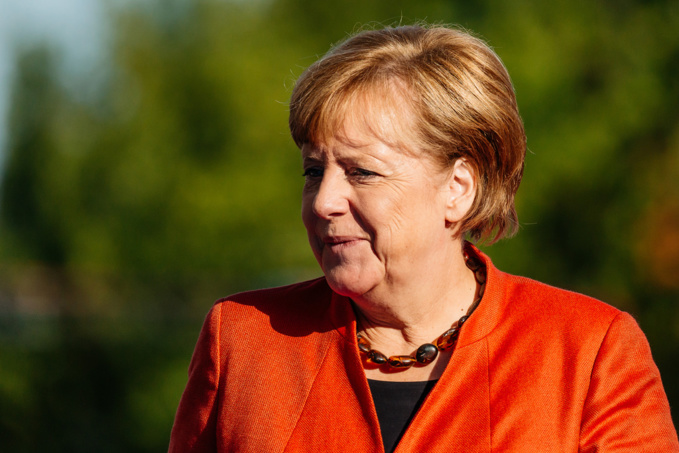Without exaggeration, Angela Merkel shook the whole of Germany, announcing in October that she was leaving the post of leader of the Christian Democratic Union (CDU). Nevertheless, Mrs. Merkel intends to finalize her fourth term as Federal Chancellor, which expires in 2021. Becoming an ordinary Christian Democrat, Angela Merkel has significantly weakened in a political sense. Meanwhile, in order to lead the country for another three years, she will need to overcome many obstacles.
Bloomberg has compiled four possible scenarios for further developments of Federal Chancellor Angela Merkel.
According to the first scenario, the election of the CDU chairman, which will be held on December 8, will be won by Friedrich Merz. He is 61 years old, and is not a newcomer in politics. Back in 2009, he went into business after Angela Merkel ousted him from his post as party leader. Merz became a successful entrepreneur. He claims that his return to big politics is not about taking revenge on the offender. However, most analysts believe that their cooperation in the event of his victory will not be easy.
Becoming the chairman of the CDU, Friedrich Mertz will gain control of the party apparatus and will gradually redirect the Christian Democrats to the right in order to win votes from the far-right party Alternative for Germany (AdF), which has achieved major successes in recent years. The forecast estimated probability of such a development at 15%.
Under the second scenario, Angela Merkel will be able to establish normal, working relationships with the new CDU chairperson, regardless of who they become: Friedrich Mertz or her protégé Annegret Kramp-Karrenbauer. However, the situation outside the Christian Democratic Union will be significantly complicated. The Social Democrats (SPD), members of the ruling Grand Coalition, paid a heavy price for supporting the Conservatives. Their ratings continue to decline and are already at risk of going into single digits. Increasingly more political scientists are talking about the possibility, for though rather remote, of disappearance of the oldest political party in Germany. At least, the fate of the allies of the German Social Democrats - the French socialists, who were still in power around one and a half year ago and now are on the verge of collapse, says that this is quite possible in Germany.
Everyone in Germany is talking louder about non-viability of the ruling coalition. According to the second scenario, Social Democrat Olaf Scholz, the German Minister of Finance and Deputy Chancellor, will support revision of the coalition agreement after the next defeat of the Social Democrats in the May elections to the European Parliament in 2019. Leaders of the SPD, rightly believing that cooperation with the conservatives from Merkel’s party is to blame for all the failures of the party of recent years, will decide to leave the ruling coalition. They will initiate a vote of confidence in the government in the Bundestag. If Angela Merkel loses it, she will have to leave the post of Federal Chancellor. Bloomberg estimates probability of such an outcome at 30%.
In the third scenario, Angela Merkel will succeed in working together with the new leader of Christian Democrats, and the Social Democrats will not ruin the Grand Coalition. At the end of 2019, elections will be held in the three eastern lands of the Federal Republic of Germany. There, chances of AfD, which organized violent protests last summer in Chemnitz, will be higher than ever. Judging by polls, the most likely is the victory of the ultra-right in Saxony. If the CDU lose to AfD, then a riot may break out in the ranks of the Christian Democrats. The most likely target for criticism will, as you might guess, will be the open door policy still supported by the Chancellor.
After a decade and a half, Angela Merkel will enter 2020 in complete isolation. Fatigue may well make her declare that the time has come for younger politicians. The SPD leadership will most certainly not want to remain on the sinking ship and will quit the coalition, which will lead to early elections and the departure of Mrs. Merkel from the post of Chancellor. The probability of such a development is estimated at 25%.
According to the fourth scenario, the most favorable for Merkel, things are going more or less normally for her in both the CDU and the ruling coalition. In 2020, the German parties will begin to prepare for the elections to the Bundestag, which will be held in 2021. The CDU may well decide that Angela Merkel should resign so as not to confuse the new party candidate. However, the Chancellor will be supported by one of the party veterans - Wolfgang Schäuble, who was considered her rival not so long ago. He will remind those disgruntled about the German constitution and that the time period for the Federal Chancellor to fulfill the duties is four years, not three.
At the elections, the Christian Democrats will win another victory, after which leaders of the CDU will begin negotiations with other parties on creation of another coalition. All the time of negotiations, Angela Merkel will serve as interim head of government. Negotiations, like negotiations after elections last year, will prove difficult and time consuming. So December 19, 2021 will come, and duration of Angela Merkel’s term in power will come out on top among Chancellors in the post-war history of Germany. The probability of such a scenario is 30%.
source: bloomberg.com
Bloomberg has compiled four possible scenarios for further developments of Federal Chancellor Angela Merkel.
According to the first scenario, the election of the CDU chairman, which will be held on December 8, will be won by Friedrich Merz. He is 61 years old, and is not a newcomer in politics. Back in 2009, he went into business after Angela Merkel ousted him from his post as party leader. Merz became a successful entrepreneur. He claims that his return to big politics is not about taking revenge on the offender. However, most analysts believe that their cooperation in the event of his victory will not be easy.
Becoming the chairman of the CDU, Friedrich Mertz will gain control of the party apparatus and will gradually redirect the Christian Democrats to the right in order to win votes from the far-right party Alternative for Germany (AdF), which has achieved major successes in recent years. The forecast estimated probability of such a development at 15%.
Under the second scenario, Angela Merkel will be able to establish normal, working relationships with the new CDU chairperson, regardless of who they become: Friedrich Mertz or her protégé Annegret Kramp-Karrenbauer. However, the situation outside the Christian Democratic Union will be significantly complicated. The Social Democrats (SPD), members of the ruling Grand Coalition, paid a heavy price for supporting the Conservatives. Their ratings continue to decline and are already at risk of going into single digits. Increasingly more political scientists are talking about the possibility, for though rather remote, of disappearance of the oldest political party in Germany. At least, the fate of the allies of the German Social Democrats - the French socialists, who were still in power around one and a half year ago and now are on the verge of collapse, says that this is quite possible in Germany.
Everyone in Germany is talking louder about non-viability of the ruling coalition. According to the second scenario, Social Democrat Olaf Scholz, the German Minister of Finance and Deputy Chancellor, will support revision of the coalition agreement after the next defeat of the Social Democrats in the May elections to the European Parliament in 2019. Leaders of the SPD, rightly believing that cooperation with the conservatives from Merkel’s party is to blame for all the failures of the party of recent years, will decide to leave the ruling coalition. They will initiate a vote of confidence in the government in the Bundestag. If Angela Merkel loses it, she will have to leave the post of Federal Chancellor. Bloomberg estimates probability of such an outcome at 30%.
In the third scenario, Angela Merkel will succeed in working together with the new leader of Christian Democrats, and the Social Democrats will not ruin the Grand Coalition. At the end of 2019, elections will be held in the three eastern lands of the Federal Republic of Germany. There, chances of AfD, which organized violent protests last summer in Chemnitz, will be higher than ever. Judging by polls, the most likely is the victory of the ultra-right in Saxony. If the CDU lose to AfD, then a riot may break out in the ranks of the Christian Democrats. The most likely target for criticism will, as you might guess, will be the open door policy still supported by the Chancellor.
After a decade and a half, Angela Merkel will enter 2020 in complete isolation. Fatigue may well make her declare that the time has come for younger politicians. The SPD leadership will most certainly not want to remain on the sinking ship and will quit the coalition, which will lead to early elections and the departure of Mrs. Merkel from the post of Chancellor. The probability of such a development is estimated at 25%.
According to the fourth scenario, the most favorable for Merkel, things are going more or less normally for her in both the CDU and the ruling coalition. In 2020, the German parties will begin to prepare for the elections to the Bundestag, which will be held in 2021. The CDU may well decide that Angela Merkel should resign so as not to confuse the new party candidate. However, the Chancellor will be supported by one of the party veterans - Wolfgang Schäuble, who was considered her rival not so long ago. He will remind those disgruntled about the German constitution and that the time period for the Federal Chancellor to fulfill the duties is four years, not three.
At the elections, the Christian Democrats will win another victory, after which leaders of the CDU will begin negotiations with other parties on creation of another coalition. All the time of negotiations, Angela Merkel will serve as interim head of government. Negotiations, like negotiations after elections last year, will prove difficult and time consuming. So December 19, 2021 will come, and duration of Angela Merkel’s term in power will come out on top among Chancellors in the post-war history of Germany. The probability of such a scenario is 30%.
source: bloomberg.com



















